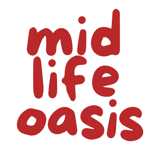Coffee and Menopause: Perks, Pitfalls, and Perfect Brews for Middle-Aged Women
Coffee’s antioxidants and energy-boosting perks make it a popular choice, but for menopausal women, it’s a mixed bag. Caffeine may worsen sleep, anxiety, and hot flashes. Moderation, timing, and alternatives like green tea or golden milk offer solutions. Savor your brew, but keep it balanced to navigate menopause with ease.
1/23/20252 min read


Well, coffee has always been our great friend in clearing off that morning fog to ready us for the day. More than the energy it infuses in the body, various studies also document that it contains loads of antioxidants and decreases the risk for Type 2 diabetes. How friendly, though, is this drink for middle-aged women fighting the labyrinth of symptoms surrounding menopause? A closer look here.
The Menopause-Coffee Connection: Brain Boost or Foggy Frenzy?
With menopause, brain fog, memory lapses, and an inability to focus are some of the unwanted visitors that arrive. A steaming cup of coffee seems to be just the right antidote for many. Of course, caffeine improves focus and, for the time being, can increase alertness. But does this boost remain well and alive with menopausal women, or is there a hidden string attached?
Caffeine Chronicles: What Coffee Does to Your Menopausal Body
While coffee gives one a quick pick-me-up, its effects can be two-edged for the body during menopause. Here are a few considerations:
Sleep Disturbances: While menopause disrupts sleep, caffeine can heighten this with its stimulating effects, particularly if consumed late in the day.
Anxiety: The hormonal changes that occur during menopause can make women more sensitive to caffeine, thus giving jitters or increasing anxiety.
Hot Flashes: Caffeine may provoke or increase the severity of hot flashes, according to some research.
Hooked on the Bean
There's little denying the magic of coffee, but it's just so easy to cross the line from occasional enjoyment into full-blown dependency. The caffeine content in coffee works on dopamine production, creating a mild addictive effect. This can eventually result in increased tolerance and a need for more coffee to get that same energizing buzz.
Moderation is key, especially for middle-aged women who may already be juggling hormonal imbalances.
Coffee Alternatives and Smarter Routines
If you can't fathom giving up your favorite coffee, don't worry-you don't have to. Here are some tips to help you enjoy coffee in moderation:
Time It Right: Drink coffee only in the morning so that it won't affect your sleep later.
Downsize Your Cup: Replace that super-sized mug with a smaller one to keep your caffeine intake at a reasonable level.
Choose Quality: Opt for organic or freshly brewed coffee to maximize the health benefits while minimizing potential toxins.
For those who want to expand their drink options, here are some alternatives:
Green Tea: Higher in antioxidants and lower in caffeine, it offers a softer energy boost.
Herbal Teas: Chamomile or peppermint can help calm nerves and relax the body.
Golden Milk: A warm mixture of turmeric, milk, and spices offers anti-inflammatory benefits.
Lighten Up: Don't Let Coffee Steal the Show
As much as we love our coffee, remember that no one drink has the key to perfect health. Menopause is a time for embracing balance, not just in our hormones but also in lifestyle choices. Enjoy your morning brew, but perhaps forego that third cup-unless you like inviting midnight hot-flash dance parties!
Coffee can be both a blessing and a challenge for middle-aged women dealing with menopause symptoms. While its antioxidants and energy-boosting properties are undeniable, excessive consumption may worsen symptoms like sleep disturbances and anxiety. Moderation, timing, and exploring alternatives can help you enjoy the perks of coffee without the pitfalls. Cheers to a balanced brew!
